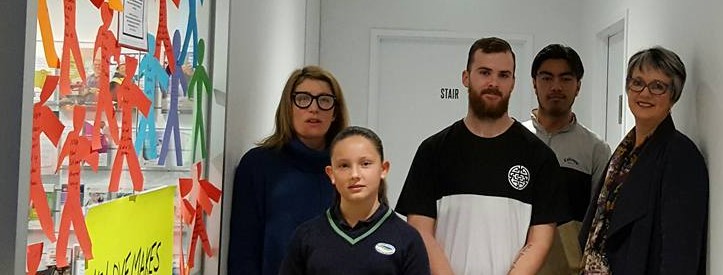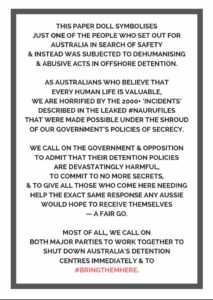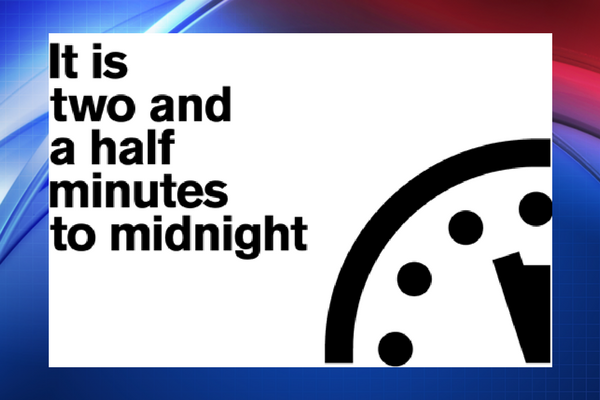
This morning I participated in a public action in response to the release of the #NauruFiles last week. A few of us gathered outside the offices of Brendan O’Connor, who is the federal MP in my electorate of Gorton, to protest the Australian government’s asylum seeker policy of detaining people offshore, particularly in Nauru.
The Nauru Files show evidence of sexual assault, bullying, intimidation and worse. Detainees quoted in the Nauru Files express discouragement, hopelessness, mental and physical agony and ongoing trauma. And yet, the release of the files has barely caused a ripple in the media.
Refugee advocates including Love Makes a Way, Mums4Refugees, Grandmothers Against Detention of Refugee Children, ChilOut and People Just Like Us organised a series of actions all over Australia, all of them lawful and peaceful, ‘to draw attention to and as a symbol of each person who has suffered from abuse and trauma as detailed in the recently leaked Nauru reports‘.
These have been ongoing all week at various politician’s offices. I organised the one at Brendan O’Connor’s Caroline Springs office via facebook with a friend I really haven’t seen for years.
 Six of us gathered, including my friend’s two young daughters. We posted paper dolls with an accompanying explanation of what they represented at the entrance to O’Connor’s office building
Six of us gathered, including my friend’s two young daughters. We posted paper dolls with an accompanying explanation of what they represented at the entrance to O’Connor’s office building and then made our way to his 2nd floor office where we were met by six Victoria Police officers. When they realised we were a small group and we intended to hold a peaceful vigil, they radioed ahead to ‘stand-down’ reinforcements who were on their way from Melton. Nevertheless, two of them stayed with us for the whole 30 minutes we were there.
and then made our way to his 2nd floor office where we were met by six Victoria Police officers. When they realised we were a small group and we intended to hold a peaceful vigil, they radioed ahead to ‘stand-down’ reinforcements who were on their way from Melton. Nevertheless, two of them stayed with us for the whole 30 minutes we were there.
We read a moving poem about leaving home, fleeing danger and seeking safety. We affirmed our faith and our intention to welcome the stranger. We finished with alternate voices quoting from Martin Luther King Jr.
This last part is what I found most moving, so I include the text here:
Reader: “The ultimate measure of a [person] is not where [he or she] stands in moments of comfort and convenience, but where [he or she] stands at times of challenge and controversy.”
All: “The arc of the moral universe is long, but it bends towards justice.”
Reader: “We are called to speak for the weak, for the voiceless, for the victims of our nation, for those it calls ‘enemy.’”
All: “The arc of the moral universe is long, but it bends towards justice.”
Reader: “…we will not be satisfied until ‘justice rolls down like waters, and righteousness like a mighty stream.’”
All: “The arc of the moral universe is long, but it bends towards justice.”
Reader: “Non-cooperation with evil is as much a moral obligation as is cooperation with the good.”
All: “The arc of the moral universe is long, but it bends towards justice.”
Reader: “The time is always right to do what is right.”
All: “The arc of the moral universe is long, but it bends towards justice.
On Sunday, the biblical text which we read and I preached from reminded us of ‘the great cloud of witnesses’; the people of faith who have gone before us and yet, in some mystical, spiritual way are still with us. The people who make up this great cloud of witnesses are not mere spectators; they cheer us on and lend us strength to continue the race of faith. Even when we feel most alone, we are never alone for they surround us and support us and urge us to persevere.

As the words of Martin Luther King Jr rang out in the hollow corridor space, and we affirmed that ‘the arc of the moral universe is long, but it bends towards justice’, I felt as if he was in the corridor with us. Our six swelled to hundreds, thousands. A chorus of ‘Amen and Amen’ could almost be heard and I knew that our action, seemingly insignificant, set against the backdrop of police laughter, was bigger than we can hope and imagine.
Indeed, Love Makes A Way.


 Six of us gathered, including my friend’s two young daughters. We posted paper dolls with an accompanying explanation of what they represented at the entrance to O’Connor’s office building
Six of us gathered, including my friend’s two young daughters. We posted paper dolls with an accompanying explanation of what they represented at the entrance to O’Connor’s office building and then made our way to his 2nd floor office where we were met by six Victoria Police officers. When they realised we were a small group and we intended to hold a peaceful vigil, they radioed ahead to ‘stand-down’ reinforcements who were on their way from Melton. Nevertheless, two of them stayed with us for the whole 30 minutes we were there.
and then made our way to his 2nd floor office where we were met by six Victoria Police officers. When they realised we were a small group and we intended to hold a peaceful vigil, they radioed ahead to ‘stand-down’ reinforcements who were on their way from Melton. Nevertheless, two of them stayed with us for the whole 30 minutes we were there.